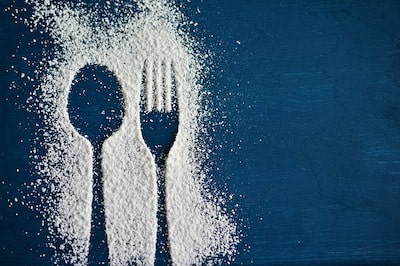
It's Not Just Candy and Soda: Healthy Smiles April 2019

By Alison Jackson, DDS
“I don’t understand why my child has cavities. They don’t eat candy or drink soda.”
I hear this every day. It’s true that sugar is bad for your teeth and parents are right to look to candy and soda as a cause of cavities. However, we are learning that things are often
more complicated. The true cause of dental carries (the infectious process that causes cavities) is the acid that detrimental bacteria excreta on your teeth.

These bacteria thrive on sugar. It doesn’t matter the source of sugar. Candy and soda are an obvious source of sugar; however, we need to look closely at what else kids are eating and how often they are eating it.
The American Heart Association recommends that children under the age of 18 eat no more than 25 grams of added sugar per day. Added sugars are easy to track. They are listed on the Nutrition Facts label for all packaged foods. We tend to look at the number of grams of sugar in a can of coke (39g) or a bag of Sour Patch Kids (26g per 5oz bag), but often don’t think about the per serving sugar in products like flavored Greek yogurt (16g,) Cliff granola bars (21g,) dried fruit (22g for 1/3 cup of dried cranberries) and gummy vitamins (2-6g per gummy.) Drinks we usually think of as healthy alternatives can be culprits too. Vanilla almond milk contains ~13g of sugar per cup and vanilla soy milk includes 8g of sugar per cup. Obviously, none these healthy alternatives add up to a single can of coke. But when combined over the course of a normal busy day, they can quickly add up to unhealthy levels of sugar. Further, when you add a sticky quality to foods, like gummy vitamins or gooey granola bars, it localizes the sugars and keeps them around the tooth for longer periods of time. This increases the risk for cavities. If parents can look into the mouth ten minutes after their child has eaten a snack and still see food on their teeth, that snack can contribute to cavities.
Carbohydrates are complex sugars that break down into simple sugars during digestion. This process starts in the mouth. If these complex sugars stick to teeth long enough, they will breakdown and add to the sugar problem. Crackers are quick and easy snacks but should be washed down with water and not left to linger in the mouth.
Not all kids struggle with cavities be- cause additional factors including genetics, bacterial balance and hygiene all contribute to the overall health of the mouth. According to the CDC, 50 per- cent of children in the US have experienced tooth decay by the age of 11. That means half of our kids should be following sugar guidelines for overall health. But the other half need to be following them for healthy teeth as well. Being aware of the hidden sugars in our diets is an important and healthy step. There are healthy, low sugar alternative foods and healthy habits that we can use in our daily lives. Your dentist, nutritionist or pediatrician can help identify changes and substitutes that will help you and your family achieve a low sugar lifestyle.
Alison Jackson practices in Aptos, at 7545 Soquel Dr., Suite A. Her phone is 831.662.2900 and the website is santacruzkidsdentist.com


You May Also Like

From Growing Up in Santa Cruz to Competing in Australia: Extreme Adventures
April 1, 2019
Five Great Ways to Unplug and Get Your Kids Outdoors
April 17, 2018

